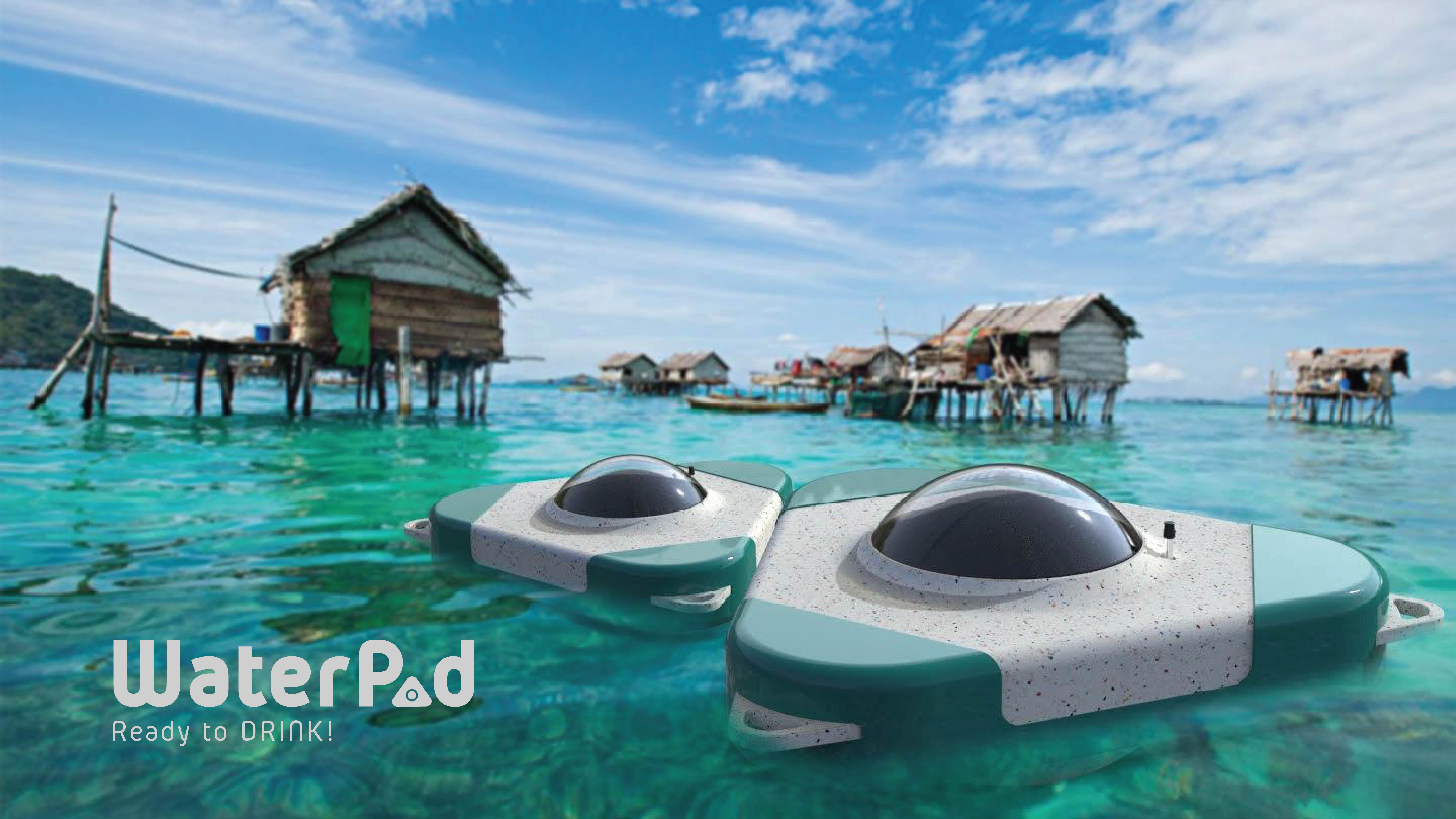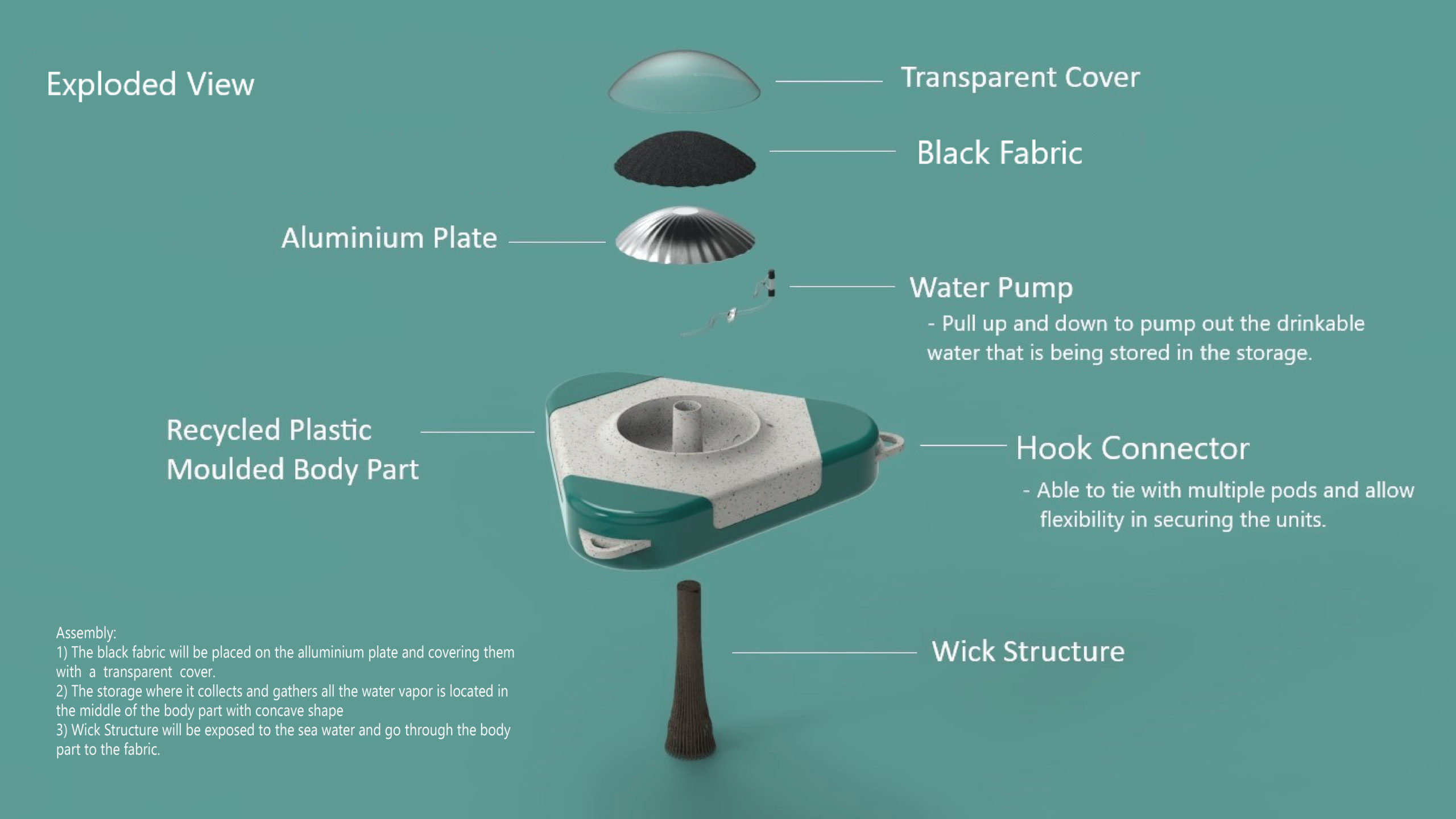
Humans have flown to the Moon and may even make it to Mars. But providing clean water to all remains a challenge. The World Health Organization estimates that one in three people globally still do not have easy access to clean water. While desalinating ocean water is an obvious solution, the current process is both expensive and harmful for the environment. Now, some Malaysian students may have found a cheaper, more sustainable way to transform seawater into drinkable water.

Bennie Beh Hue May, Loo Xin Yang, and Yap Chun Yoon of the Asia Pacific University of Technology came up with the idea of WaterPod after observing the hardships of ethnic groups like the Sama-Bajau. The "sea nomads" reside in homes atop stilts in the shallow waters off the coast of the Philippines, Malaysia, and Indonesia. While the ocean provides the legendary divers with plenty of food, they often have to barter with nearby communities to obtain fresh water.
Made using recycled plastic waste, WaterPod is designed to draw up water from the sea with minimal salt intake. The salt that remains is filtered through a process of evaporation and condensation in the clear plastic-covered, dome-shaped container at the top. The water retrieved is collected in a storage chamber that can hold between 8 to 10.5 gallons (30.28 to 39.75 liters). The sustainable, self-cleaning device can work as an individual unit of water desalination. However, its modular design also allows for the creation of a network of WaterPods that could provide water for entire communities.

The ingenious device beat out 120 entries to win the national James Dyson Award in Malaysia on August 25, 2021. The team will now compete with 84 finalists worldwide for the International 2021 James Dyson Award. The annual contest aims to encourage students to develop unconventional ideas to solve real-world problems. The winners, announced by the end of 2021, will receive a cash prize of $38,167 and an additional $6,440 for their university. If WaterPod wins, the inventors plan to use the funds to develop the device beyond the prototype stage.
Resources: www.jamesdysonaward.org, thebossmagazine.com
